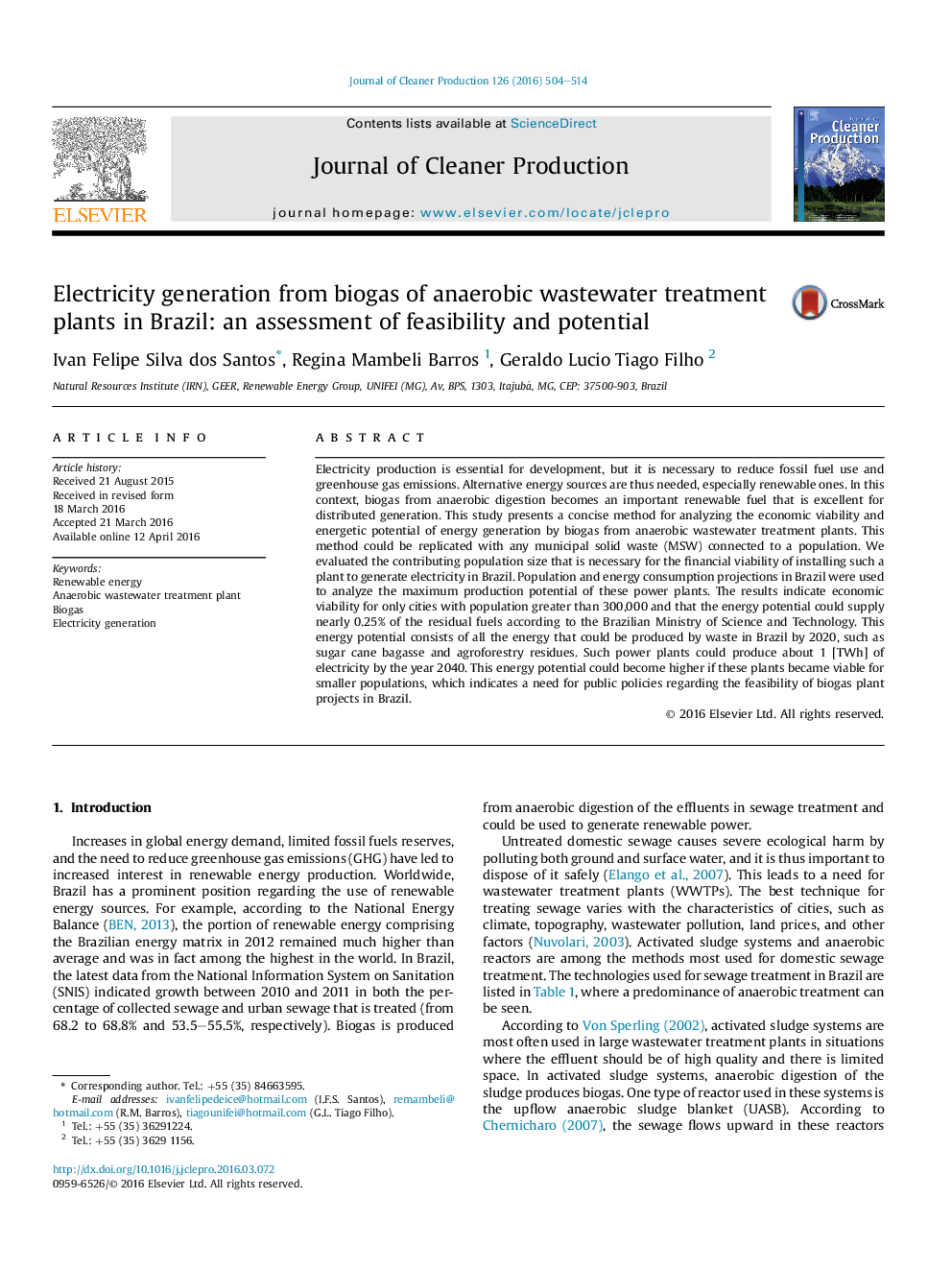| Article ID | Journal | Published Year | Pages | File Type |
|---|---|---|---|---|
| 8102147 | Journal of Cleaner Production | 2016 | 11 Pages |
Abstract
Electricity production is essential for development, but it is necessary to reduce fossil fuel use and greenhouse gas emissions. Alternative energy sources are thus needed, especially renewable ones. In this context, biogas from anaerobic digestion becomes an important renewable fuel that is excellent for distributed generation. This study presents a concise method for analyzing the economic viability and energetic potential of energy generation by biogas from anaerobic wastewater treatment plants. This method could be replicated with any municipal solid waste (MSW) connected to a population. We evaluated the contributing population size that is necessary for the financial viability of installing such a plant to generate electricity in Brazil. Population and energy consumption projections in Brazil were used to analyze the maximum production potential of these power plants. The results indicate economic viability for only cities with population greater than 300,000 and that the energy potential could supply nearly 0.25% of the residual fuels according to the Brazilian Ministry of Science and Technology. This energy potential consists of all the energy that could be produced by waste in Brazil by 2020, such as sugar cane bagasse and agroforestry residues. Such power plants could produce about 1 [TWh] of electricity by the year 2040. This energy potential could become higher if these plants became viable for smaller populations, which indicates a need for public policies regarding the feasibility of biogas plant projects in Brazil.
Related Topics
Physical Sciences and Engineering
Energy
Renewable Energy, Sustainability and the Environment
Authors
Ivan Felipe Silva dos Santos, Regina Mambeli Barros, Geraldo Lucio Tiago Filho,
